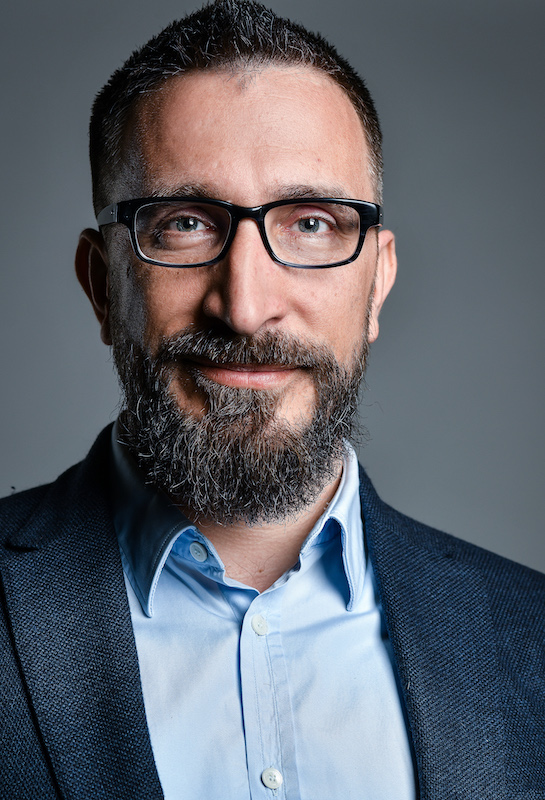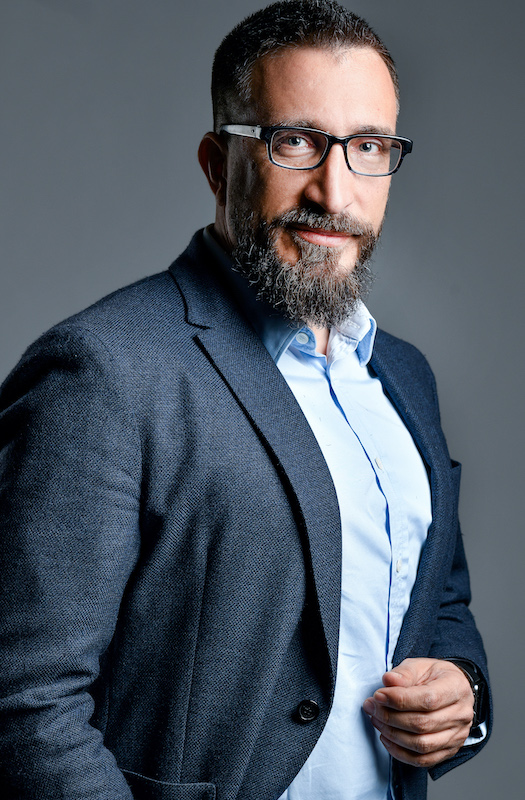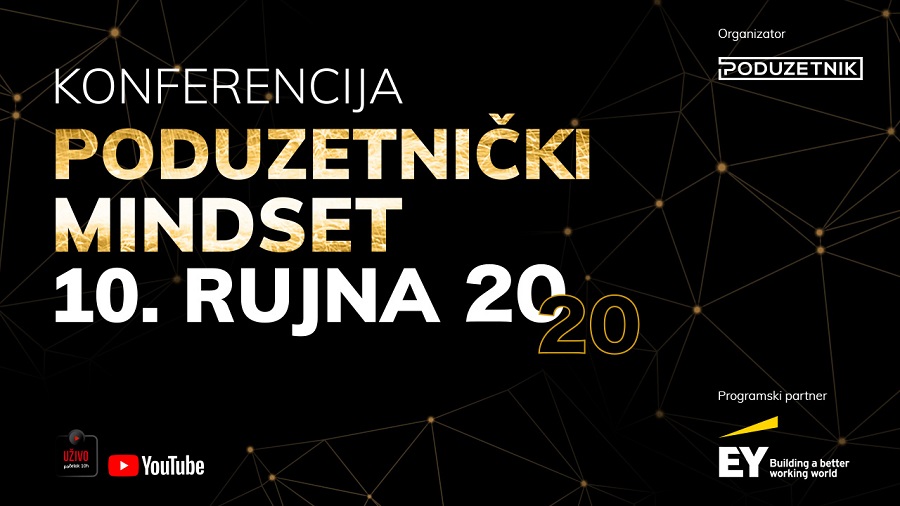Entrepreneurial Mindset 2020 Conference Speakers: Meet Boris Trupcevic
September 9, 2020 - The second Poduzetnik Mindset (Entrepreneurial Mindset) conference takes place online tomorrow. Continuing our look at the speakers, meet Boris Trupcevic, CEO of 24 Sata.
One of the leading lights in the campaigns for the digitisation of Croatia, as well as wider reforms, is 24Sata CEO, Boris Trupcevic. TCN caught up with Boris on the eve of the Poduzetnicki Mindset 2020 conference, which takes place online and in Zagreb tomorrow.
1. As CEO of one of Croatia's leading media, you are on the front line of demanding change in Croatia. How are things going, and do you see cause for optimism?
I would say there’s still not much to be happy about. Again, we were focused on observing the tourism season results that caused temporary optimism, hoping we could go on as we did before, but then we got the cold shower of border closures. Also, the focus was on the money shower from EU, which was presented as a gift from heaven, requiring no effort from our side, which of course is not true. In the meantime, we did not see any fundamental reform being even discussed, let alone being prepared. There’s a long list of problems, a long list of issues that can only be resolved with so-called “structural reforms”, but still those in power avoid engaging in any destiny-changing initiatives. It’s still just cosmetic changes and keeping the status quo as much as possible. No person, no business and no country has ever moved forward by keeping the status quo. It’s simply impossible. Therefore, we will keep on creating the awareness of the necessity of change and reforms. We will stubbornly remind those in power they need to act. Fast.
2. What is the entrepreneurial mindset, and why is it so important in the Croatian context?
True entrepreneurs are indeed the ones who change the world and move the world forward. They teach us about courage, boldness, perseverance, grit, resilience, flexibility, adaptiveness, responsibility, risk taking… all that while putting on the line their wellbeing, health and assets. Values and qualities we can observe with the entrepreneurs are what is missing in Croatia. It is exactly the qualities that are not appreciated as they should be.
3. Why is the perception of an entrepreneur in Croatia so different than in countries like the UK/USA?
We simply don’t have the right mindset. The reasons for this are historical, political and cultural. While we could discuss those for hours, it’s all in vain. We’re held hostage by a huge dependancy of the economy towards the state, by dependancy on corrupt actors, and finally also politicians. We’re held hostage by the narrative of the trade unions depicting entrepreneurs as crooks, thieves and evil capitalists. We’re held hostage by the mentality that it is better to find an “uhljeb” job position, than work your way to success. All of this must change. And change starts with leadership. Lack of leadership is also one of the major problems. Once we start treating our top entrepreneurs as heroes we will know we have become detached from past habits.

4. Campaigns such as 24 Sata's Reforms Now, and the Glas Poduzetnika (Voice of Entrepreneurs) movement have brought a lot of cohesion to the demand for change in Croatia. What successes have you had, and what's next?
As I said, I can’t see major changes. Both initiatives have created the type of awareness we haven’t seen before. This is important, because it lays the ground for change. Another big thing is that entrepreneurs had a strong and clear voice, unlike any time before. And they were not afraid to use this voice to demand their rights. In that regard, I think many decisions would not have happened without this kind of pressure towards the government. What’s next is to be consistent and persistent in demanding real reforms. The people of this country are very well aware we can’t move forward without reforms, but still what they feel and know is less important than the voting base of political parties.
5. You are also at the forefront of the digitalisation discussion in Croatia with your award-winning media as well as the Digital Takeover conference. Are we seeing progress in Croatia's digitalisation process, and what should the focus be on for the next steps?
I think we’re progressing in many things, some even ahead of many countries, but that’s simply not enough. We should aim higher and strive to be at the top of the game, like Estonia. We’re late with introducing digital skills in schools, we’re intentionally late with digitising the state and governmental services to the full extent, because that narrows down the playground for corruption. It can all be done fast. We’re also known as Apsurdistan for a reason - the state does many things with obsolete technologies and methods, without a deeper understanding of what digitalisation really is. World superpowers are involved in an ongoing war to win at digital technologies, big tech companies are waging a war to acquire the best talent worldwide. We sit and wait for things to happen. We discuss the topic simply because it cannot be ignored anymore. We’ve got Croatian companies security-checked by foreign intelligence agencies in order to be vetted for working for huge corporations, but those are never invited to do something for their own country. Instead, we have digitalisation jobs often done by shady companies for too much money. So, one thing I’d point out as a failure of the state is the failure to engage our best tech companies.

6. Prime Minister Plenkovic has announced the digital nomad visa for Croatia. How significant could this be for Croatia and its economy?
It’s a very good initiative by Jan de Jong, and a very good signal from PM side to support it. However, it comes with many challenges, primarily in terms of sorting out the bureaucracy, all the obstacles, but also issues of not making it discriminatory towards own citizens. Prime Minister made a promise, he committed to this idea. We should hold him accountable to make it happen.
7. Tell us about your role in Poduzetnicki Mindset 2020, and what are you expecting from the conference?
There are two most important things. First, entrepreneurs should connect both more and stronger, this community needs more interaction. Second, the conference and all those participating should inspire young people to become entrepreneurs, provide valuable advice, and encourage existing entrepreneurs to think even bigger and bolder.

Read also interviews with Ognjen Bagatin of Bagatin Clinic, Jan de Jong of Webpower Adria, and Ana Hanzekovic of Hanza Media.
To learn more about the virtual Poduzetnik Mindset 2020 conference on September 10 - and to register - visit the official website.


